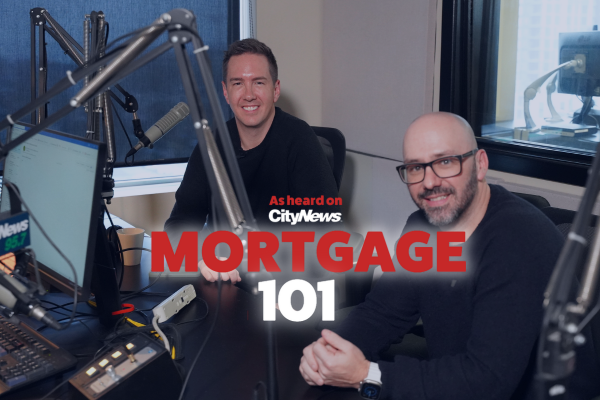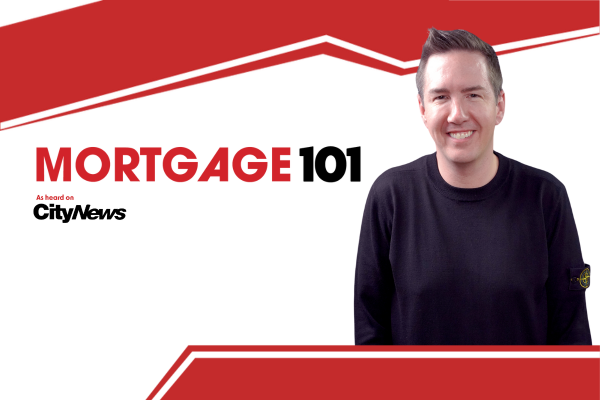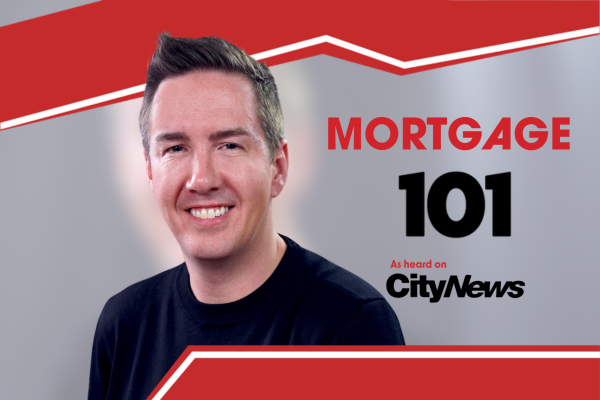If you've been thinking of where you are on the checklist of qualifying for your first home, Clinton and Todd get into the specifics this episode! From the mortgage rule changes for first time homebuyers, to the stress test, and qualification requirements, your Mortgage 101 hosts chat about everything you need to consider when taking out your first mortgage.

Mortgage 101 – Empowering Informed Mortgage Decisions | December 14th, 2023
In our last segment of Mortgage 101 for the year, Clinton Wilkins and Chris Turcotte, President of CENTUM Financial, chat with Todd Veinotte and answer listener questions regarding extending rates, how mortgages impact your credit score, down payment assistance in Nova Scotia, title insurance and why Unbiased mortgage professionals empower informed decisions
Todd Veinotte 00:05
She wanted to offer some clarity regarding the conversation that we had before the break.
A mortgage industry misconception about bank operations
Chris Turcotte 00:10
Yeah. And I think it was Mark that had the question where it is a common misconception from Canadian mortgage consumers that aren’t in the industry, where he said, well, I’m already paying 2.49. Can’t the bank just extend that? And that’s a very perfectly natural assumption. What when you get in the inner workings of the mortgage, something you have to remember is, Scotia can’t even get money for that price right now. You know, so we think oh it’s the big bank, though, they can just and I’m already paying them, they could just continue that? Well, no, they actually have to go to treasury and they have to get new funds to extend that on their book. And they’re paying substantially more for that money. So you know, not certainly not defending the banks, by any stretch of the imagination.
Clinton Wilkins 00:52
And Scotiabank is a great partner of ours as well.
Chris Turcotte 00:54
They’re a fantastic partner, you full disclosure. Their the number one lender for over a decade in the broker channel, right. So the fantastic partners, if anything, more or less, just an understanding of the inner workings. It’s not that they don’t want to, they have to go get those funds, and they are paying substantially more for it as well.
Clinton Wilkins 00:59
And I think the pricing strategy with lenders has changed Todd. You know, some lenders certainly have had a better appetite for, you know, retaining mortgages on their book in terms of renewal and onboarding new mortgages, and the appetites not all the same. So right now, we’re certainly seeing a lot of variance in terms of pricing from lender to lender.
Paying off your mortgage early may not improve your credit score
Todd Veinotte 01:29
Okay, email question before the phone says this question from Sean says, Why did the credit rating companies not recognize paying off a mortgage early as a positive. You borrowed, you paid back early, how is that not a positive thing?
Clinton Wilkins 01:42
Love it. So I hear this all the time. And it’s not just a mortgage, it’s any debt. So there’s two credit reporting agencies in Canada, there’s Equifax and TransUnion. And it’s out of a score of 900. So usually, what we say is anything over, you know, 720 is an excellent score. It’s made up of really three components. One is obviously making your payments. So making your point payments is important. And you know, another factor is utilization. So what is the high limit on the account? And how much do you owe? And then the other is really the credit mix. So like what type of, you know, debts do you have? Do you have a car loan? Do you have a mortgage? Do you have a line of credit, you have credit cards, and, you know, having no credit is almost as bad or worse sometimes than having bad credit. So paying off your debts and paying them off quicker, the credit reporting agencies don’t know when they really don’t care. It’s based on what is your risk profile, and you making your payments obviously has an impact on what that score is going to be. And you need to make payments on active accounts. So once the accounts closed, yes, having good history is history. But history is in the past, specifically with Equifax. Everything falls off after six years in Nova Scotia. So if you had good history, bad history, it’s gone after six years.
Todd Veinotte 02:57
Okay, 902-405-6000. Bradley Hello.
Down payment assistance in Nova Scotia
Bradley 03:01
I just got a question. Is there ever a way in Nova Scotia where you could get a loan without putting a down payment? I know most places, you have to have a 5% down payment?
Clinton Wilkins 03:13
Yeah, the minimum downpayment is 5%. But in Nova Scotia, we do have a downpayment assistance program that’s run by the province. And depending on what your household income is, you can qualify. In Halifax, you can qualify up to buying a home for $500,000. So that’s around where the median mark is in terms of purchase price. In different municipalities, that number is different. But all the information is available on the Nova Scotia downpayment assistance website. And if you want a link to the website, if you don’t even you can visit our site at teamclinton.ca and email me and I will flip it back over to you so you can have a look and see if it’s going to work in your situation.
Bradley 03:53
Okay, perfect. Thank you.
Todd Veinotte 03:54
Okay, thanks, Brad. Appreciate it.
Clinton Wilkins 03:56
Just to clarify a little bit on this program, because I think you know, I do get asked this quite a lot. You know, homeownership oftentimes is cheaper than renting, especially in this rental environment in Halifax, we’re at 1% vacancy. The way that downpayment assistance program works is it’s an interest free loan from the province and you pay it back over 10 years. So it’s registered as a second mortgage. And then you’d get the obviously a first mortgage, you know, we’d arrange a first mortgage for a customer at 95%. And then the down payment source would be borrowed. And high ratio insurers have a program called flex down so you can borrow your downpayment. Whether that’s from the Nova Scotia Downpayment Aassistance Program, or maybe you can borrow your down payment from unsecured line of credit, it’d be the similar type of situation.
Chris Turcotte 04:40
I was gonna bring up the flex down.
Clinton Wilkins 04:42
And they have these similar programs, I think in different provinces across the country. I know in the prairies, they have a few programs.
Chris Turcotte 04:48
They don’t have a 5% though, that’s outstanding. Like yeah, it was –
Clinton Wilkins 04:52
And New Brunswick has a program as well. So depending on where you are in the country and your municipality different and obviously there’s different programs. It’s a great program here in Nova Scotia and it has been renewed over the last few years. I think the program was very popular in the early days and they kind of maybe ran out of money or they excluded Halifax, that pocket that they had, you know, deemed for Halifax that was kind of used up. We have some clients that are going through that program right now. So it certainly does work and it’s a great option.
The cost of title insurance
Todd Veinotte 05:17
I got a quick email question that I wanted to get to, this one says, can you ask about title insurance? And I know you got into this earlier, to protect from property fraud, how do you get it? And how much does it typically cost?
Clinton Wilkins 05:28
Love it. We should have had this question when Brenna was here because I think she could speak to this. I’ll certainly talk about it. FCT is a big title insurer in Canada, and there’s other competitors as well. The way that title insurance works is when you do a mortgage, the lender deems that you need to get title insurance. So that’s a lender policy. You can also ask your lawyer or FCT to get the homeowners side of the policy which comes with I think about 40 different chattels. It protects you from things like title fraud, but it also protects you from things like your survey, you know, back in the day before title insurance was a thing, every time you did a transaction, you need to do a survey, if your survey was more than, like, let’s say 20 years old, nobody does a survey anymore, unless you’re building a new house. And the survey is really only good for the person that paid for that survey, they’re the ones that would you know, would have that endorsement. So title insurance is very, very common. And I can tell you in Nova Scotia, a lot of lawyers will do title insurance first. And it protects you from other chattels, like when you do a refinance. So for example, you don’t need to do a water test. If you live in the countryside, you probably have a well, and when you buy a home, you need to test that water. And the lender would condition on for a water test for a refinance. But if you’re getting title insurance, it also comes with a water endorsement. You know, we’ve heard of these horror stories, that you know, you’ve built a shed, and it’s been on your neighbor’s line or on the other side of the property line. Things like that may be protected by title insurance, depending on what your situation is. So I always tell people, if you have any disputes with your property lines, easements, right aways, certainly talk to a lawyer and see you know, did you have title insurance and it’s not something that’s going to protect you.
Unbiased mortgage professionals empower informed decisions
Todd Veinotte 07:12
Alright, we are flush out of time. Chris, anything you want to add before we wrap it up?
Chris Turcotte 07:17
No I think that I think the only thing to close on is you know everyone coming up with renewal. It’s not a knock on any particular bank whatsoever. You’ve just got to think of, it’s critical, now more than ever, it’s critical, your bank that you’re currently with their their main goal is to keep you there. There’s nothing wrong with that. But I’d much rather make sure that I’m going to somebody unbiased, to present me the best option, right. So just just some food for thought it costs you absolutely nothing to go to an unbiased professional, get every card in the deck laid out on the table to make an informed decision for the next chapter versus going back to the bank that you’re with that their sole purpose is to keep you there. So food for thought that’s the only thing that I have.
Todd Veinotte 07:57
Okay, Clinton how do people get ahold of you?
Clinton Wilkins 07:59
They can visit us online at teamclinton.ca/radio. You know, I want to thank all our listeners, it was a great show. We’ve been doing this for five years. This is our 13th show this season. And you know, we’re gonna be back with you giving more great information. I think 2024 It’s going to be certainly an interesting ride. I think the rates are gonna be high, at least for the first half of the year. And we’re gonna be here reporting to you live when the Bank of Canada meets. And certainly we want to give you as much education and information as we can.
Todd Veinotte 08:26
Indeed, and you brought lunch.
Clinton Wilkins 08:27
I brought lunch. We’re gonna have a hot lunch after this.
Todd Veinotte 08:31
Alright, we always love it. Thanks for coming in gentlemen to both of you.


